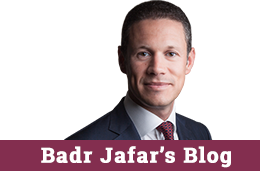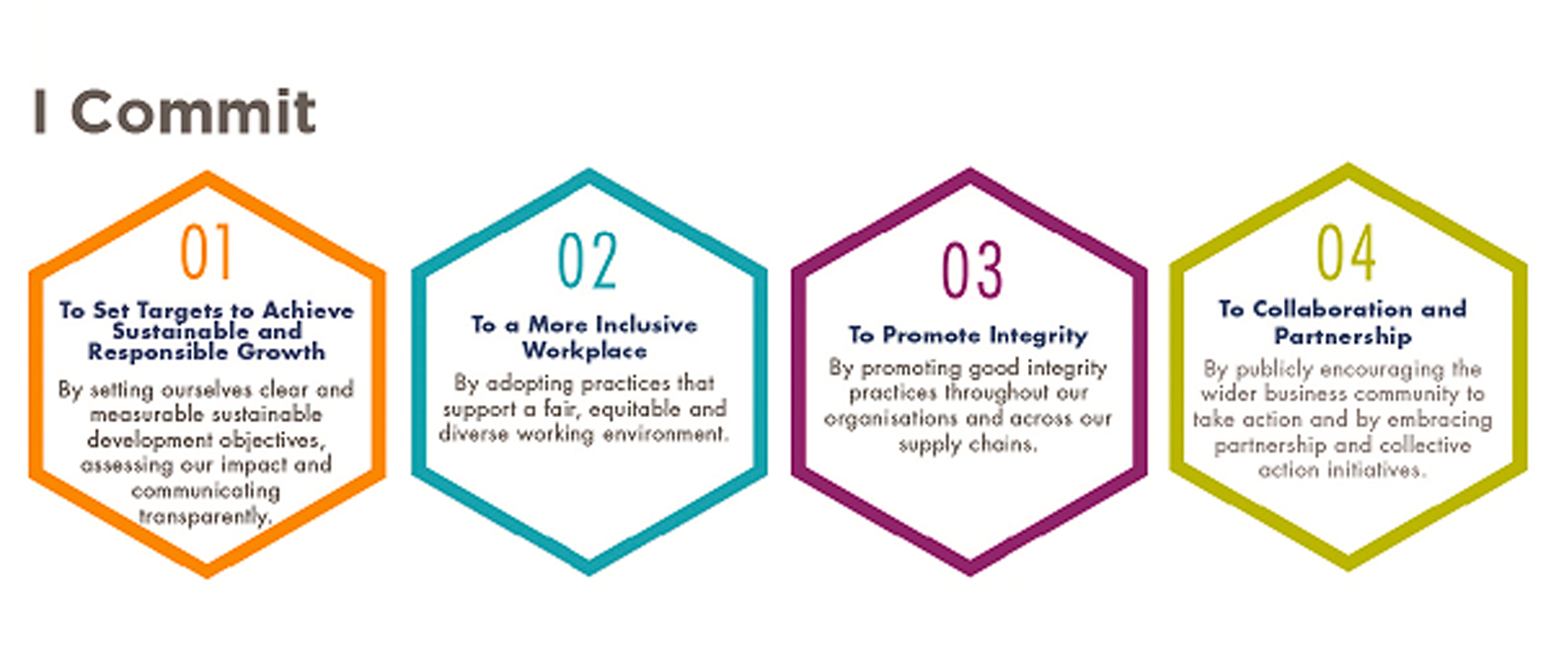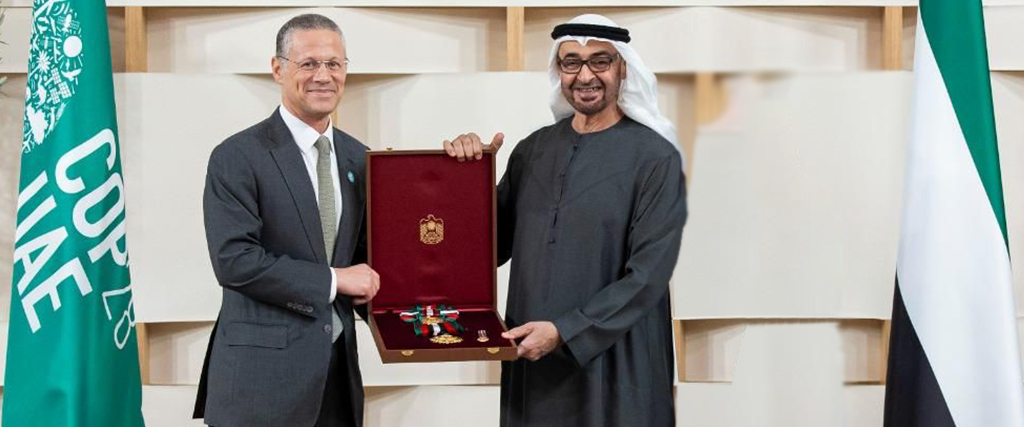The Business Pledge: Sustainable Development Demands Optimism and Action
In the year 1900, global life expectancy was 31 years. By comparison, a child born today is expected to live well into their 70s. Over the same period, global literacy rates have risen from around 12 per cent to 86 per cent, and the percentage of people living in absolute poverty has fallen from 85 per cent to less than 10 per cent.
Meanwhile, the advancement of technology has brought us to the cusp of a fourth industrial revolution, with the potential to transform our social, economic and political landscapes for the better.
What does all this mean? It means that if we focus on the long-term trendlines, rather than just the daily headlines, it is apparent that we are living in humanity’s most prosperous age.
This way of looking at things is not blind optimism. Our world and our region still face many challenges. In parts of the Middle East, violent extremism preys on an underemployed youth bulge, and actively threatens to destabilise communities.
In Syria, a grave humanitarian crisis festers because of a vacuum in global governance, the effects of which will reverberate for generations. Climate change, and the consequences for our water, energy and food security nexus, looms more visible by the day.
The governance challenges of the technology revolution, including cybercrime and the disruption of entire industries, are issues that we are only just beginning to comprehend.
However, it is also true that our collective ability to overcome the challenges we face has never been greater. For example, international efforts to confront infectious diseases, such as polio, malaria and HIV, and eradicate others such as smallpox, have saved millions of lives in recent decades.
The Millenium Development Goals, launched by the UN in 2000, achieved notable successes in education, hunger reduction, and development cooperation. And last December, world leaders reached a historic agreement in Paris to address the existential threat of climate change.
Then in January this year, the world’s new Sustainable Development Goals (SDGs) for the year 2030 came into force with the unanimous endorsement of all 193 UN member states.
What stands out about the SDGs is just how clearly the role of business has been articulated in the new agenda. Rather than just being a part of the solution or a donor for third-party projects, the private sector is now an essential component of humanity’s vision for a more sustainable world.
The SDGs are specifically designed to empower the private sector to think globally, but act locally, including here in the GCC. After all, the five pillars (or “five Ps”) of the SDGs — people, planet, prosperity, peace and partnerships — are all of fundamental importance to the future, our region, our people and our businesses.
That’s why in October, these five pillars were chosen as the basis for the second Regional Forum hosted by the Pearl Initiative — a private sector-led non-profit initiative that promotes good corporate governance as a pillar of sustainable growth across the Gulf region. The purpose of the Forum, held in collaboration with the United Nations Global Compact, was to contextualise the SDGs, make them both relevant and practical for businesses in the Gulf, but also to hear directly from members of the regional business community on what these principles mean to them.
Attended by over 800 delegates from across the region, the Forum culminated in the launch of the “Business Pledge”- a public commitment to corporate governance and sustainable development for Gulf-based companies, spanning four specific areas of intervention:
1. To set targets to achieve sustainable and responsible growth, by setting clear and measurable sustainable development objectives, assessing impact and communicating transparently.
2. To create a more inclusive workplace, by adopting practices that support a fair, equitable and diverse working environment.
3. To promote integrity and anti-corruption, by promoting good practices throughout individual organisations and their supply chains.
4. To embrace collaboration and partnership, by publicly encouraging the wider business community to establish cross-sector synergies and contribute to collective action initiatives.
Encouragingly, more than 160 business leaders from across the region have taken the Business Pledge to date. However, what is particularly exciting is how those signatories have agreed to hold themselves accountable for that commitment.
Rather than just ticking the box and moving on, the CEOs that have signed the Pledge have also agreed to meet on an annual basis with university students from the region, and to talk to them about what they’ve done in the last 12 months in the spirit of this commitment.
Why should CEOs speak directly with students from the region? Because their generation have much more at stake in these decisions and actions than we do. They will be the ones that truly benefit, or the ones that have to pay heavily, for the actions that we take today.
And the least that we can do as business leaders is to hold ourselves accountable in real time for what we do (or fail to do) to make our world, and their birthright, a more sustainable place — socially, economically and ecologically.
As published in GulfNews (December 17, 2016)

 Tweets by @BadrJafar
Tweets by @BadrJafar




